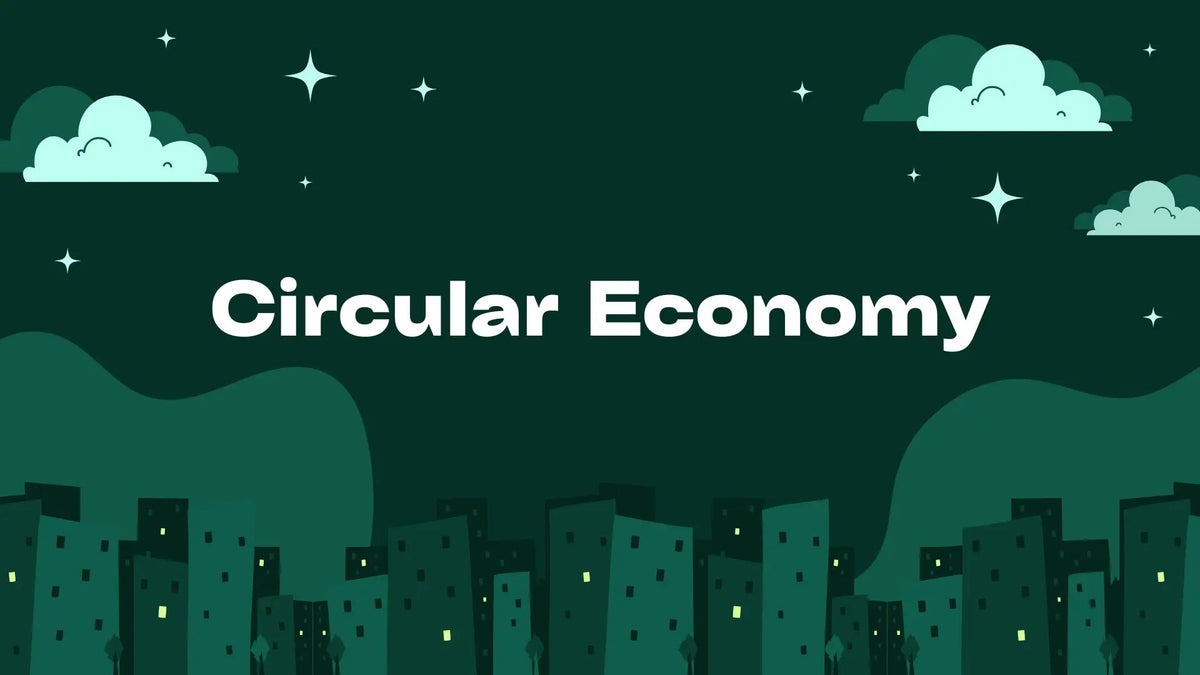
🌿 Circular Economy: How Transforming Waste into Wealth is Revolutionizing Sustainable Business Practices
|
|
Time to read 3 min
|
|
Time to read 3 min
😍 Imagine a world where nothing goes to waste—where yesterday’s trash becomes today’s resource. Sounds like a futuristic dream? Think again. 🌄 The circular economy changes how businesses work. 🗽It shows that waste can become wealth, drive innovation, and promote sustainability.
🏭 Businesses are changing how they handle waste. Fashion brands are turning old clothes into new collections. Tech companies are recycling electronic waste into valuable materials. 🌏This approach helps the planet and boosts profits. In this blog, you will learn how the circular economy is changing business. 🌞You’ll see why companies are adopting it and how you can join the change.
🚀 The circular economy is a fresh approach to how we make and use things. It reduces waste by keeping materials in use longer.
🏭 Businesses are moving away from the old “take, make, dispose” model. Now, they focus on reducing, reusing, and recycling.
👜Design for longevity – Create products that last, not break.
💧 Recycling & upcycling – Materials get a second life instead of ending up in landfills.
🌟Sharing & repairing – Rental, second-hand, and repair markets are growing.
🏬 Sustainable sourcing – Companies use renewable and recycled materials to minimize waste.
🌀 Eliminating single-use culture – More brands are moving away from disposable items to focus on long-term use.
🗽 The circular economy isn’t just good for the planet—it’s good for business. Companies that adopt sustainable practices are seeing benefits in:
Reusing materials means spending less on raw resources.
Reduced waste disposal costs = higher savings.
Businesses using circular models often reduce energy consumption and lower manufacturing costs.
Most global consumers, about 73%, are ready to change their habits. They want to lessen their environmental impact.
Sustainable businesses build stronger customer loyalty.
Millennials and Gen Z choose brands that share their values. They care about transparency and sustainability.
Companies that creatively utilize waste are launching new product lines.
Startups are finding profitable ways to turn discarded materials into valuable goods.
Biodegradable packaging, 3D-printed recycled materials, and zero-waste supply chains are expanding possibilities.
Governments are pushing for sustainability regulations.
Early adopters of the circular economy will be ahead of future business trends.
Investors are increasingly backing businesses that follow ESG (Environmental, Social, and Governance) principles.
Circular models help reduce pollution and greenhouse gas emissions.
Brands switching to recycled materials drastically lowers their energy use.
Food companies using compostable packaging are cutting plastic waste significantly.
Patagonia’s Worn Wear program repairs and resells used gear.
Encouraging customers to buy less and keep products longer.
Uses recycled materials in new collections to close the production loop.
Renault reuses old car parts to manufacture refurbished vehicles.
Saves energy and reduces the need for raw materials.
Their factory in France focuses on remanufacturing old vehicles. They turn them into like-new models.
Uses regenerated fabrics like Econyl (made from ocean waste plastic).
Designs with biodegradable and recyclable materials.
Advocates for a waste-free fashion future by eliminating virgin plastics.
Loop partners with big brands to reduce single-use packaging.
Consumers buy products in refillable, reusable containers.
Major brands like Unilever, P&G, and Nestlé have joined this initiative.
✅ Choose Quality Over Quantity – Buy durable products that last longer.
✅ Support Circular Brands – Look for companies committed to zero waste.
✅ Repair & Repurpose – Fix items instead of tossing them away.
✅ Buy Second-Hand – Extend the life cycle of products by shopping thrift.
✅ Recycle Smartly – Make sure you dispose of products the right way.
✅ Be a Smart Shopper – Look up brands before you buy. Choose those that focus on sustainability.
✅ Demand Change – Support policies that promote circular economy practices in industries.
The circular economy is more than just a trend—it’s a new way of doing business. Companies are showing that sustainability and profit can work together by rethinking waste. Every choice you make as a consumer also fuels this change.
Businesses using circular models show us that waste can be an opportunity, not a problem. They show that sustainability isn’t only an environmental duty. It’s also a smart way to make money.
We all can help turn waste into wealth. We can choose eco-friendly brands. We can repair things instead of replacing them. Also, we should recycle more. Imagine if every product you buy had a second life instead of ending up in a landfill—what a world that would be!
So, next time you throw something away, ask yourself: Could this be part of something bigger? 🌿💚
Ready to be part of the change? Share this post and inspire others to embrace the circular economy! 🔄♻️

